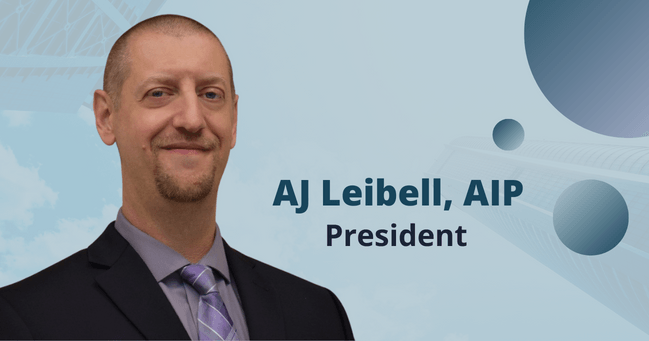Florida Commercial Flood Insurance
8:30am - 5:00pm Mon-Fri
Will Reply in 15min*
Top Recommended Business Insurance Policies

Index
Contact Us
Phone
Location
6900 Tavistock Lakes Blvd, Suite 400, Orlando FL 32827
Commercial flood insurance is an essential protection for businesses operating in Florida, a state that is highly prone to flooding due to its coastal location and low-lying terrain. Understanding the ins and outs of commercial flood insurance is crucial to safeguard your business against potential losses caused by floods. In this comprehensive guide, we will walk you through everything you need to know about commercial flood insurance in Florida.
Understanding Commercial Flood Insurance
Before delving into the specifics, it is important to grasp the definition and importance of commercial flood insurance. Commercial flood insurance is a type of insurance coverage that protects businesses from financial losses resulting from flood damage. It covers damages to commercial buildings, inventory, equipment, and other assets caused by flooding.
When it comes to protecting businesses from the devastating effects of floods, commercial flood insurance is an essential tool. Floods can wreak havoc on commercial properties, causing extensive damage to the structural integrity of buildings and destroying valuable assets. Without proper insurance coverage, businesses may find themselves in a dire financial situation, struggling to recover and rebuild.
Definition and Importance of Commercial Flood Insurance
Commercial flood insurance is designed to provide financial protection for businesses in the event of flood-related losses. It goes beyond the coverage offered by standard property insurance policies, which typically exclude flood damage. By obtaining commercial flood insurance, businesses can safeguard their assets and ensure that they have the necessary resources to recover from flood-related disasters.
One of the key reasons why commercial flood insurance is so important is that floods can occur anywhere, regardless of whether a business is located in a high-risk flood zone or not. Even areas that are not traditionally prone to flooding can experience unexpected and severe weather events that result in flooding. Therefore, businesses of all types and sizes should consider obtaining commercial flood insurance to mitigate the financial risks associated with flood damage.
The Role of Commercial Flood Insurance in Florida
In Florida, where the risk of flooding is particularly high, commercial flood insurance plays a vital role. Due to its geographical location, the state is susceptible to various types of flooding, including coastal, riverine, and rainfall-related floods. Businesses located in flood-prone areas or near bodies of water are especially vulnerable and should prioritize securing proper insurance coverage.
Florida's unique climate and topography make it a hotbed for flooding events. The state experiences heavy rainfall, especially during the hurricane season, which can lead to flash floods and overflowing rivers. Additionally, its extensive coastline exposes businesses to the risks of storm surge and coastal flooding. Without adequate commercial flood insurance, businesses in Florida may find themselves facing significant financial losses and struggling to recover from flood-related damages.
It is worth noting that commercial flood insurance in Florida is not only important for businesses located in high-risk flood zones but also for those situated in areas that may not be immediately obvious flood-prone areas. The unpredictable nature of weather patterns and the potential for climate change-induced shifts in flood patterns make it crucial for businesses across the state to assess their flood risk and secure appropriate insurance coverage.
In conclusion, commercial flood insurance is a vital tool for businesses to protect themselves from the financial devastation caused by flood damage. Whether located in Florida or any other part of the country, businesses should carefully evaluate their flood risk and consider obtaining commercial flood insurance to ensure their long-term viability and resilience in the face of potential flooding events.
The Basics of Commercial Flood Insurance Policies
When considering commercial flood insurance, it is essential to understand the coverage provided, as well as any exclusions, policy limits, and deductibles that may apply.
Commercial flood insurance is a type of insurance coverage specifically designed to protect businesses from the financial losses caused by flooding. Flooding can occur due to various reasons, such as heavy rain, overflowing rivers, or hurricanes. Without adequate insurance coverage, businesses can face significant financial hardships and may struggle to recover from the damages caused by flooding.
Commercial flood insurance typically covers physical damage caused by flooding to the insured building and its contents. This includes structural damage, such as foundation cracks, wall damage, and damage to electrical systems. It also covers damage to fixtures, machinery, inventory, and other essential business assets. However, it is important to note that certain items, such as outdoor property, currency, and valuable papers, may have limited coverage or exclusions. It is crucial for business owners to carefully review their policy to understand the extent of coverage provided.
Coverage and Exclusions
Commercial flood insurance policies outline the specific coverage provided and any exclusions that may apply. In addition to the physical damage mentioned earlier, commercial flood insurance may also cover additional expenses incurred due to flooding. These expenses can include the cost of temporary relocation, business interruption losses, and even the cost of cleaning up after the flood. However, it is important to note that coverage for these additional expenses may vary depending on the policy and insurance provider.
Exclusions in commercial flood insurance policies refer to the situations or items that are not covered by the policy. Common exclusions may include damages caused by sewer backups, gradual water damage, or damages to vehicles. It is crucial for business owners to carefully review the policy exclusions to understand the limitations of their coverage.
Policy Limits and Deductibles
Commercial flood insurance policies come with both coverage limits and deductibles. The coverage limit denotes the maximum amount the insurance company will pay out for a covered loss. It is important for business owners to assess their property's value and potential risks to determine the appropriate coverage limit. Underinsuring can leave a business vulnerable to financial losses in the event of a flood, while overinsuring can result in unnecessary expenses.
Deductibles, on the other hand, refer to the amount policyholders must pay out of pocket before their insurance coverage kicks in. Deductibles can vary depending on the policy and the insurance provider. Higher deductibles often result in lower insurance premiums, but it is crucial for business owners to carefully consider their financial capabilities and the potential costs of a flood when selecting a deductible amount.
It is crucial to understand these limits and deductibles when selecting a policy and to ensure they align with your business's particular needs and budget. Consulting with an insurance professional can help business owners navigate the complexities of commercial flood insurance and make informed decisions.
The Cost of Commercial Flood Insurance in Florida
The cost of commercial flood insurance in Florida can vary based on several factors. Understanding these factors and exploring ways to lower your insurance premium can help you secure adequate coverage while minimizing costs.
Florida, known for its beautiful beaches and sunny weather, is also prone to flooding due to its low-lying geography and frequent tropical storms. As a result, commercial property owners in the state often face high insurance premiums to protect their businesses from potential flood damage.
Factors Influencing Insurance Rates
Insurance rates for commercial flood insurance are influenced by various factors. These include the location of the insured property, its elevation, its proximity to water bodies or flood zones, the building's construction, and the coverage limits and deductibles selected.
When it comes to location, properties situated closer to the coast or in flood-prone areas are considered higher risk and therefore attract higher insurance premiums. Similarly, properties located in areas with a history of flooding or near rivers and lakes are more likely to experience flood-related damage, leading to increased insurance costs.
The elevation of a property is another crucial factor. Buildings situated at a higher elevation are less susceptible to flooding, as water is less likely to reach them during heavy rainfall or storm surges. Consequently, properties located at higher elevations often enjoy lower insurance rates compared to those at lower elevations.
The construction of the building also plays a significant role in determining insurance rates. Structures built with flood-resistant materials and designed to withstand flooding are considered less risky and may qualify for lower premiums. On the other hand, buildings with basements or lower levels that are more prone to flooding may face higher insurance costs.
Furthermore, the coverage limits and deductibles selected by the policyholder can impact the insurance premium. Higher coverage limits and lower deductibles provide greater protection but come at a higher cost. It is essential to strike a balance between adequate coverage and affordable premiums.
Other factors, such as prior flood claims and business types, may also affect insurance rates. Properties with a history of flood damage or multiple claims are considered higher risk and may face higher premiums. Additionally, certain types of businesses, such as restaurants or retail stores, may have higher insurance rates due to the increased potential for water damage to inventory and equipment.
Tips to Lower Your Insurance Premium
While commercial flood insurance is essential, there are steps you can take to lower your insurance premium. Implementing flood risk mitigation measures, such as installing flood barriers, improving drainage systems, and elevating electrical equipment, can help reduce insurance costs.
Flood barriers, such as levees or floodwalls, can provide an additional layer of protection for your property, reducing the risk of flood damage. By investing in these preventive measures, insurance companies may view your property as less vulnerable and offer lower premiums.
Improving drainage systems is another effective way to mitigate flood risk. Ensuring that your property has proper drainage channels and maintaining them regularly can help prevent water from pooling and causing damage during heavy rainfall or flooding events.
Elevating electrical equipment, such as generators or HVAC systems, above potential flood levels can also lower your insurance premium. By safeguarding these critical systems, you minimize the risk of electrical damage and reduce the potential for costly repairs or replacements.
Additionally, bundling your commercial flood insurance with other policies, such as general liability insurance or property insurance, may qualify you for discounts. Many insurance companies offer multi-policy discounts, which can significantly reduce your overall insurance costs while providing comprehensive coverage for your business.
It is important to consult with an insurance professional who specializes in commercial flood insurance to identify the most effective strategies for lowering your premium. They can assess your property's specific risk factors and recommend tailored solutions to help you secure affordable coverage without compromising on protection.
In the unfortunate event of flood damage, understanding the steps to file a claim and the subsequent settlement process is crucial for a smooth and successful claims experience.
Steps to File a Claim
When filing a commercial flood insurance claim, it is important to document the damage and notify your insurance provider as soon as possible. Take photographs and videos of the flood-damaged areas, record any relevant details, and gather supporting documentation, such as receipts and invoices. Promptly file the claim and provide all required information to facilitate the claims process.
Understanding the Settlement Process
The settlement process for commercial flood insurance claims involves the evaluation of the reported damages, verification of policy coverages, and determination of the amount payable. Insurance adjusters will assess the extent of the damages and work alongside you to reach a fair settlement. It is essential to review your policy and understand the terms and conditions to ensure an equitable resolution.
Legal Requirements and Regulations
Businesses in Florida must comply with various legal requirements and regulations concerning flood insurance. Familiarize yourself with these obligations to ensure compliance and protect your business.
Florida's Flood Insurance Laws
Florida has specific laws related to flood insurance that businesses must adhere to. These laws are in place to mitigate risks associated with flooding and to ensure that businesses in flood-prone areas have adequate insurance coverage. Understanding these laws and meeting the necessary requirements is crucial for legal compliance and peace of mind.
Compliance with Federal Regulations
In addition to state laws, businesses in Florida must also comply with federal regulations that govern flood insurance. The National Flood Insurance Program (NFIP) sets regulations and provides guidelines for flood insurance coverage. Businesses should familiarize themselves with these regulations to ensure they meet the necessary federal requirements and maintain proper insurance coverage.
In conclusion, commercial flood insurance in Florida is of utmost importance for businesses operating in flood-prone areas. Understanding the definition, coverage, and cost of commercial flood insurance, as well as navigating the claims process and complying with relevant regulations, will enable businesses to protect themselves against potential losses caused by flooding. By securing the right insurance coverage and implementing prudent risk management strategies, businesses can safeguard their assets and ensure business continuity.








